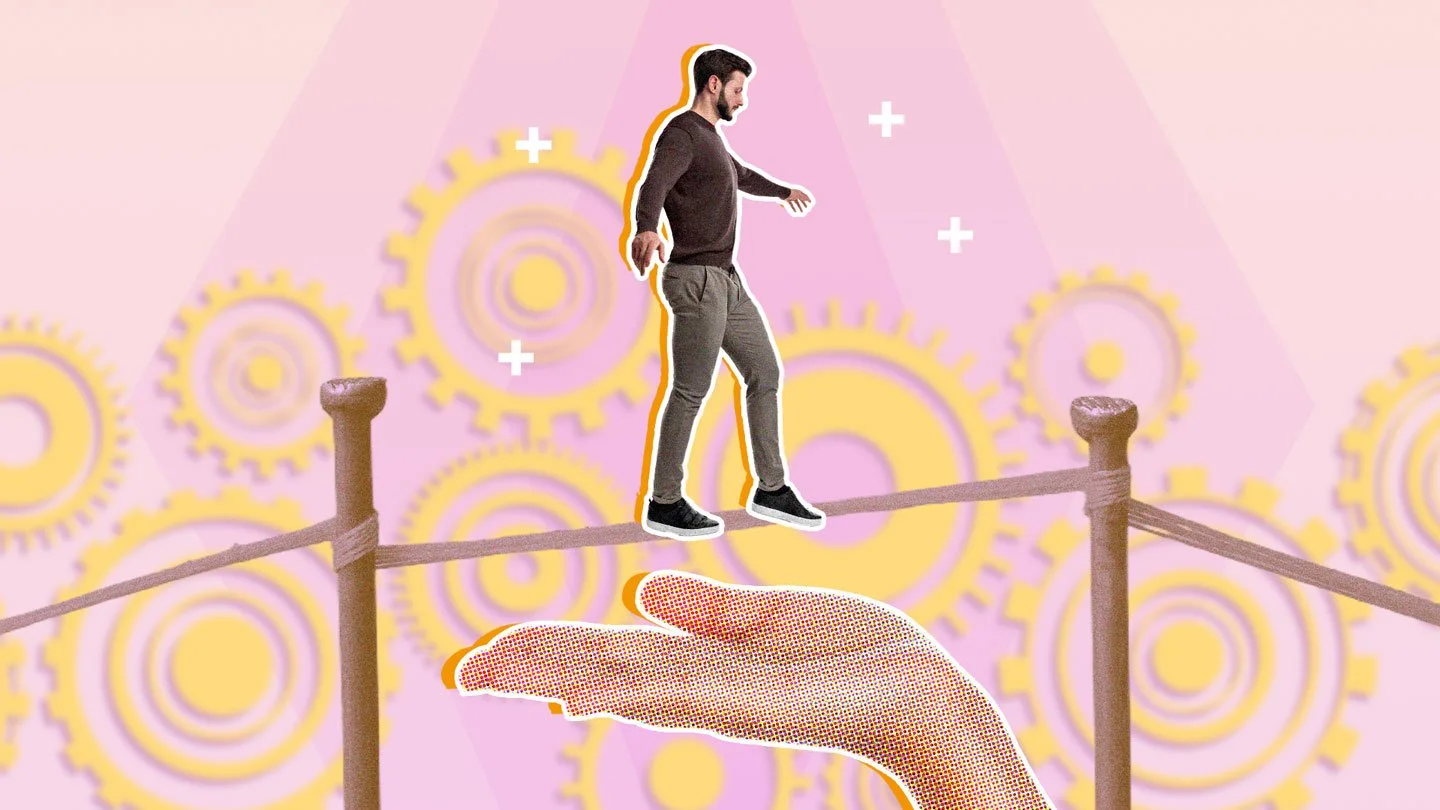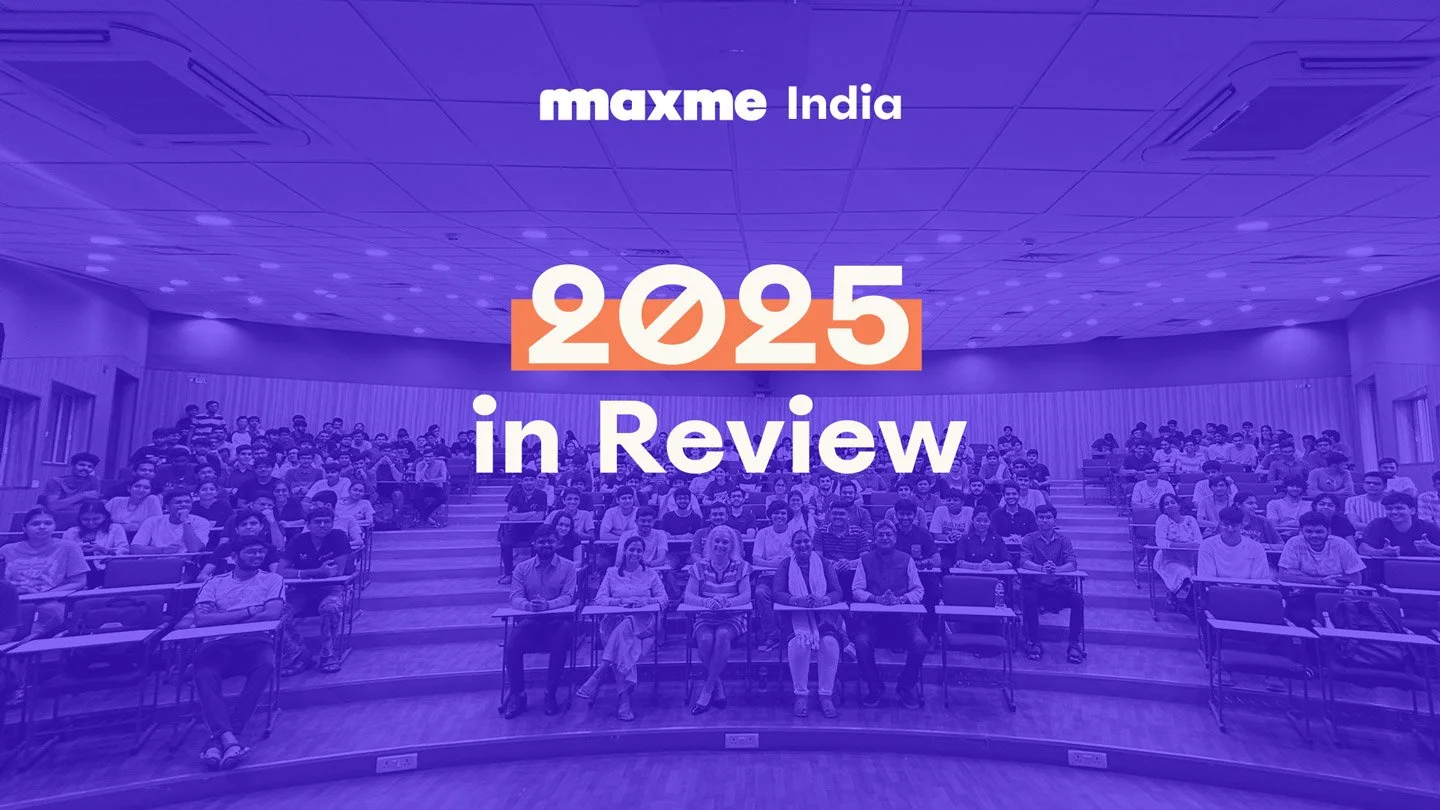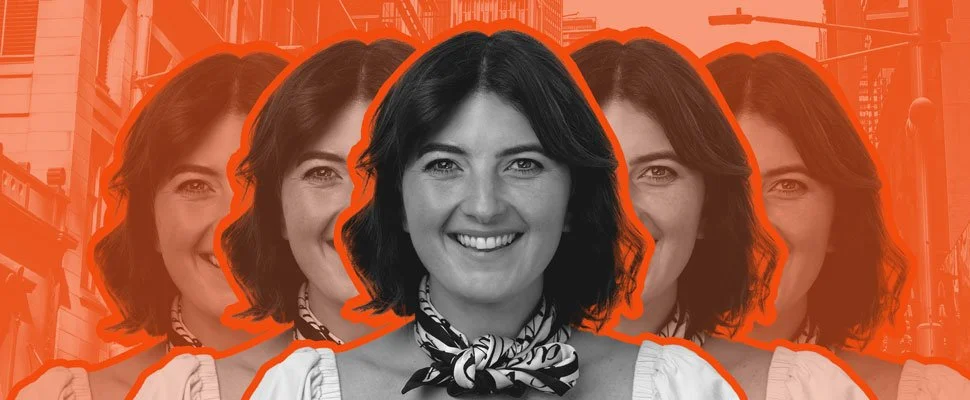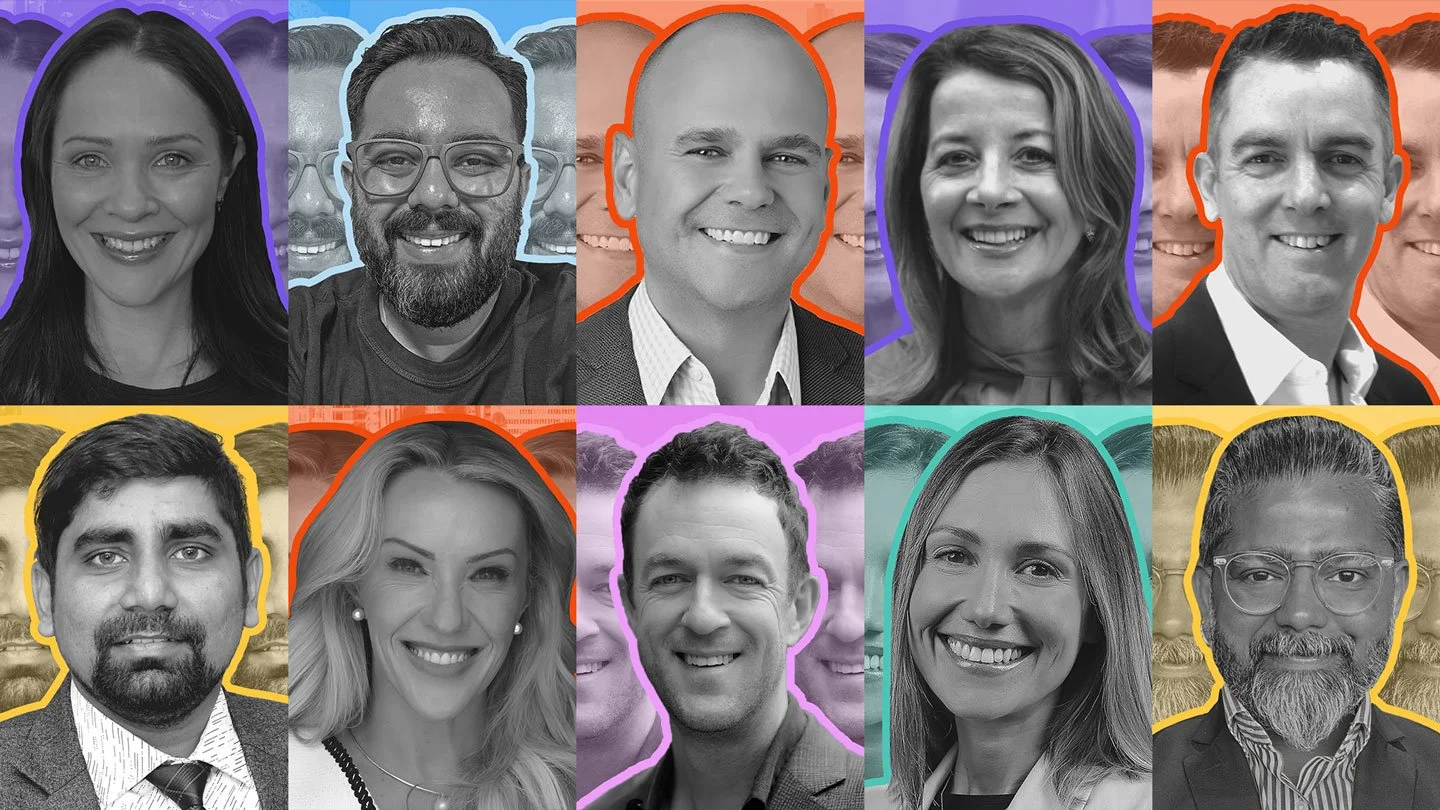Human on the Inside with Healio’s Josh Farrington
Human on the Inside. We’re big believers in the power of human skills. But don’t just take our word for it - the evidence for excellence powered by human (‘soft’) skills is everywhere! In this engaging, ever-enlightening series, we speak with industry leaders, innovators and game-changers to learn a little about their personal career journeys, and how human-led strategies, philosophies and cultures are proving a force for good in their working worlds …
Maxme: Welcome Josh, and thanks for stepping into the #SuccessIsHuman Spotlight!
You’re the Co-Founder & CEO of Healio - an Australian digital health provider on a mission to empower patients to proactively manage their health, access personalised care, and ultimately attain greater health outcomes.
In 1 sentence (ok, we’ll give you 3), what does this role entail?
Josh Farrington: Like most startup founders early in their journey, I’m wearing several hats. After spending the first couple of months setting up the business, I’ve recently shifted my focus to designing the product, hiring the team to build it, and identifying hospital partners to pilot it.
I expect my role to continuously evolve over the first two years and it will likely grow to include business development, marketing and project management. These roles will be part of my portfolio until we are in a position to scale the team.
M: While Healio only hit the market in October this year (2023), your career in healthcare and tech-enabled solutions for the industry is of course far deeper. It all started with an incredible tenure of almost 18 years with Cabrini Technology Group - an organisation clearly supportive of your professional development given the eight unique roles held over this time. Starting out as Service Engineer in November 2005, you wore numerous other hats for the company including Biomedical Engineering Manager, Commercialisation Manager and finally Innovation Manager.
In 2019 you Co-Founded Muse Digital - a boutique Melbourne-based recruitment agency that specialises in delivering world-class design and technology talent, which you continue to operate today.
In mid-2021 you created Medicity, a new digital health business within the Cabrini Technology Group and you headed up that business in the role of Director of Operations, before leaving in late 2023 to launch your own health-tech startup.
How does all this work speak to your personal purpose and what drives you as an individual?
JF: I think it’s my passion for solving problems that drives me. And what better place to solve problems than in health, where there’s an abundance of them to choose from, and more importantly, an opportunity to improve the lives of millions of people.
So if I were to distil it down into a single statement, I’d say my personal purpose is to create innovative solutions that will positively impact the health and wellbeing of Australians. This is the ultimate motivator for me, both professionally and personally.
M: Tell us a little about your personal education pathway/s - what led you to where you are now? How closely do your formal qualifications match your current career?
JF: I know it’s somewhat uncommon these days, but I’d say my career path is very closely aligned with my education pathway.
I kicked off my undergraduate studies with a degree in Electronic Engineering, not knowing where exactly it might take me. In my 3rd and 4th year, I majored in Biomedical Engineering – a discipline I didn’t even know existed a couple of years earlier.
Several years after completing my electronics/biomedical degree, and armed with some real-world experience, I went on to complete my MBA where I was introduced to a range of topics like Innovation and Entrepreneurship, in addition to your typical MBA subjects such as Strategy, Marketing, Finance and Accounting – subjects that really complemented my engineering degree.
Towards the end of my MBA I was given the opportunity to manage the biomedical department in one of New Zealand’s largest hospitals and found myself applying the knowledge from both degrees on a daily basis.
As my career progressed and shifted from medical hardware to medical software, I completed several short courses on Leadership, Human Centred Design, Product Management and Health Informatics, where I acquired a unique combination of skills and knowledge that would later enable me to become an effective healthcare technology leader.
M: If you could share one piece of career advice to your 21 year old self it would be ...
JF: 21 year old Josh wasn’t known for taking advice, but if he was prepared to listen I’d tell him that the education journey doesn’t finish with the end of your undergraduate degree. Fortunately, this was something I figured out for myself.
Knowledge is power and you’ve got to keep learning if you want to professionally evolve and keep up with the rapid rate of economic and technological change, especially in STEM. My advice is that you should continue to acquire a healthy mix of both broad and specialist domain knowledge in a space that you can see yourself working in forever.
So, how do you find this sweet spot? That space you want to work in forever? Me – I got lucky! And it wasn’t until later in life that I learnt of the Japanese concept ‘Ikigai’ which says that your ‘life purpose’ can be found at the point of convergence of four areas of life.
Find something you love, something you’re good at, something the world needs, and something you can be paid for. Fulfilment lies at the centre of that venn diagram.
Ok, getting philosophical now. Time to move on!
M: Maximising the potential of individuals, communities and businesses through the power of human skills is the reason Maxme exists. Can you tell us a little about the role and / or value of human skills in your industry right now?
JF: Human skills play a huge role in most industries, but particularly in health.
From a clinical perspective this includes the obvious traits such as empathy, compassion and attentiveness, but from a technology vendor perspective, it’s about ensuring we as a company can effectively:
Communicate our vision to prospective employees, clients and investors to instil confidence and trust
Communicate product benefits to buyers and users
Design our products with a human-centred approach, to ensure the solution meets the often-complex needs of our users, who in many cases are patients
Successfully negotiate terms with contract managers, procurement teams and hospital executives
Collaborate with hospital clinicians, IT teams and project managers for the purpose of research, co-design, implementation and integration
Take Healio for example. We’re a health-tech startup with a completely new brand, an unfamiliar product and no reference sites. In the absence of all of this, it is the human skills that we will ultimately rely on to establish trust and credibility in the market. Without this we would have no chance of attaining our first hospital partners and clients.
M: Self Awareness sets the critical foundation for all Maxme learning experiences. With that said … what’s your strongest trait / personal super power?
JF: I would say that my broad knowledge across a number of domains has allowed me to take on a range of responsibilities at Healio, which is particularly important in a lean startup with limited resources.
I don’t claim to be the subject matter expert in any of these fields but my current list of responsibilities includes product design, operations management, project management, business development, quality management, marketing, bookkeeping and regulatory affairs.
Given that most of these have been self taught, I would say my superpower is resourcefulness.
M: And on the flip side, what’s one human / ‘soft’ skill you’ve had to really work on improving over the course of your career?
JF: Over time I’ve learnt that the complexity in managing any team stems from the fact that everyone on the team is unique. And as such, a personalised management approach is required for each individual if you endeavour to get the best out of them. There is no one size fits all approach to managing and leading teams.
M: If you could share one piece of career advice with recent Uni graduates or candidates keen to work in a field like health-tech, what would it be?
JF: Although I entered the world of health-tech via a more traditional pathway, I’d like to point out that this route was only one of many possible pathways. Don’t let a lack of health-tech experience deter you from pursuing a career in a space that tens of thousands of Australians proudly operate in.
Many of my staff and colleagues over the years have come from other sectors and have brought across a raft of transferable skills. In fact, people from outside of health often bring a fresh perspective to solving complex problems in health.
M: You’ve been granted approval to add one University graduate to your team, but have 100 applicants, all with outstanding academic results. How do you find your perfect candidate - what are you looking for?
JF: I think it varies depending on that particular role and the phase of the business but I can share that we’re currently hiring and that my ideal candidate is someone who:
Has useful skills or knowledge across multiple domains, that we as a lean business can cost-effectively leverage
Has a high level of enthusiasm (and ideally a personal motivation) to solve the problem our company is trying to solve
Can follow through with a project from beginning to end
Has an agile and adaptable mindset.
M: In the words of John Dewey, “education is not preparation for life, education is life itself.”
What’s next on your #learning agenda?
JF: There’s always something to learn when operating a new business. I’m currently learning:
Which policies, procedures and systems will be required for us to attain various ISO certifications relating to quality and cybersecurity
The process and associated documentation required to submit a fully compliant R&D tax grant application
Various digital marketing tools and techniques.
To start developing your human skills today, simply download the Hodie app, or explore Maxme’s menu of human skills programs for organisations or schools.
Prefer to talk through your options? Contact us at any time.









